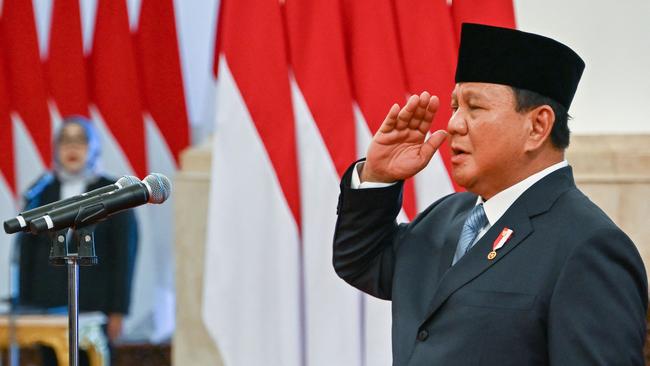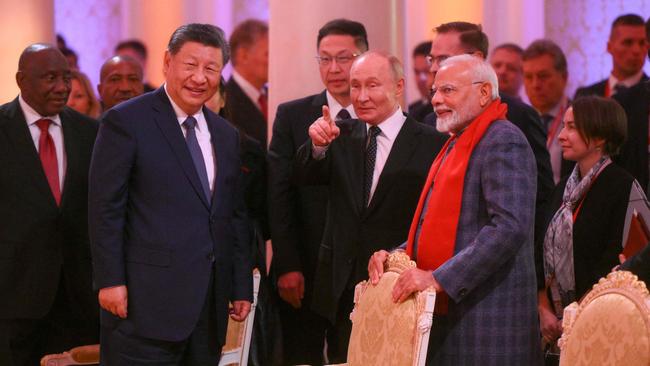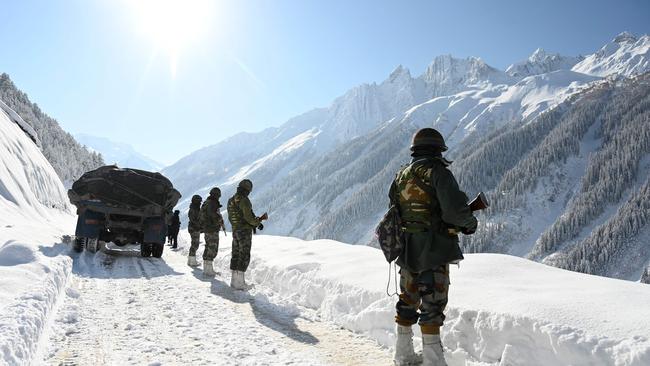Non-aligned Indonesia to hold first naval drills with Russia
Moscow’s push to build military ties with Jakarta is a timely reminder Indonesia is not a Western-aligned power

Indonesia and Russia will hold their first ever large-scale naval exercises off the coast of Surabaya next month as part of a regional military step-up by Moscow aimed at countering Western influence in Southeast Asia.
Russian ambassador to Indonesia Sergey Tolchenov told state media agency TASS this week that he hoped the naval drills would become a biennial event seen by “both friends and enemies”.
“Perhaps one day we could conduct such exercises not in the waters near Indonesia but, let’s say, in the part of the world ocean that is closer to the Russian Far East,” Mr Tolchenov added, referring to a sprawling region which crosses four time zones and borders China, Japan, Mongolia, the US and North Korea.
Three corvettes from Russia’s Pacific Fleet will arrive in Indonesia’s second-largest city ahead of the exercises from November 4 to 8, which will include a harbour phase and drills in the east Java Sea. The Russian ships are expected to come straight from joint exercises with fellow pariah nation Myanmar, which start this week.
Indonesia’s new president Prabowo Subianto, who consistently flagged a “friends to all” foreign policy ahead of his inauguration last Sunday, met with Russia’s Vladimir Putin in July when the two discussed upgrading trade and defence ties. Just days before that meeting, Russian Foreign Minister Sergey Lavrov told state media that Beijing and Moscow must work together “to jointly counter interference by forces from outside this region in the affairs of Southeast Asia”.
While Moscow’s growing military ties with Indonesia will not be welcome news in Canberra and Washington, Lowy Institute International Security Program director Sam Roggeveen said the Russian Pacific Fleet was in relatively poor shape and “not a major force” in the regional strategic balance.
“I see this as more mischief-making by Russia,” Mr Roggeveen said.
“The distinction a lot of analysts make between Russia and China on the world stage is that China wants to reshape the global order in its interests, while Russia wants to destroy the global order.”
Nevertheless, next month’s maiden joint exercises – just months after Jakarta and Canberra upgraded defence ties – was a reminder that Indonesia was “not Western-aligned”.
“I do think we make that mistake sometimes,” Mr Roggeveen said.
Russia’s announcement coincided with its hosting this week of the annual BRICS summit of emerging market economies, named for its original member states Brazil, Russia, India, China and South Africa, which Beijing and Moscow aim to build up as a counterweight to a Western-dominated global order. This week’s summit was the first to be held since Egypt, Ethiopia, Iran, Saudi Arabia and the UAE joined the bloc.
An additional two-dozen countries that had expressed interest in joining BRICS – including Indonesia – were also set to attend the summit in Russia’s eastern city of Kazan, presenting Putin with an opportunity to show that Western efforts at isolating Moscow for its war on Ukraine had not been successful.

The Russian leader met with Chinese President Xi Jinping in Kazan on Wednesday, where the two committed to boosting their co-operation for a “fair world order” amid chaotic times.
“Russian-Chinese co-operation in global affairs is one of the main stabilising factors on the world stage,” Putin said.
“We intend to further increase co-ordination at all multilateral platforms in order to ensure global security and a fair world order.”
Mr Xi said both nations had “explored a correct way for neighbouring major powers to coexist without forming alliances, engaging in confrontation or targeting third parties”.
The Chinese leader was also slated to meet Indian Prime Minister Narendra Modi on the summit’s sidelines, days after the two countries agreed to resume patrols along the Himalayan Line of Actual Control. The consensus ended a four-year military stand-off between the two Asian giants that had resulted in mounting casualties on both sides.





To join the conversation, please log in. Don't have an account? Register
Join the conversation, you are commenting as Logout